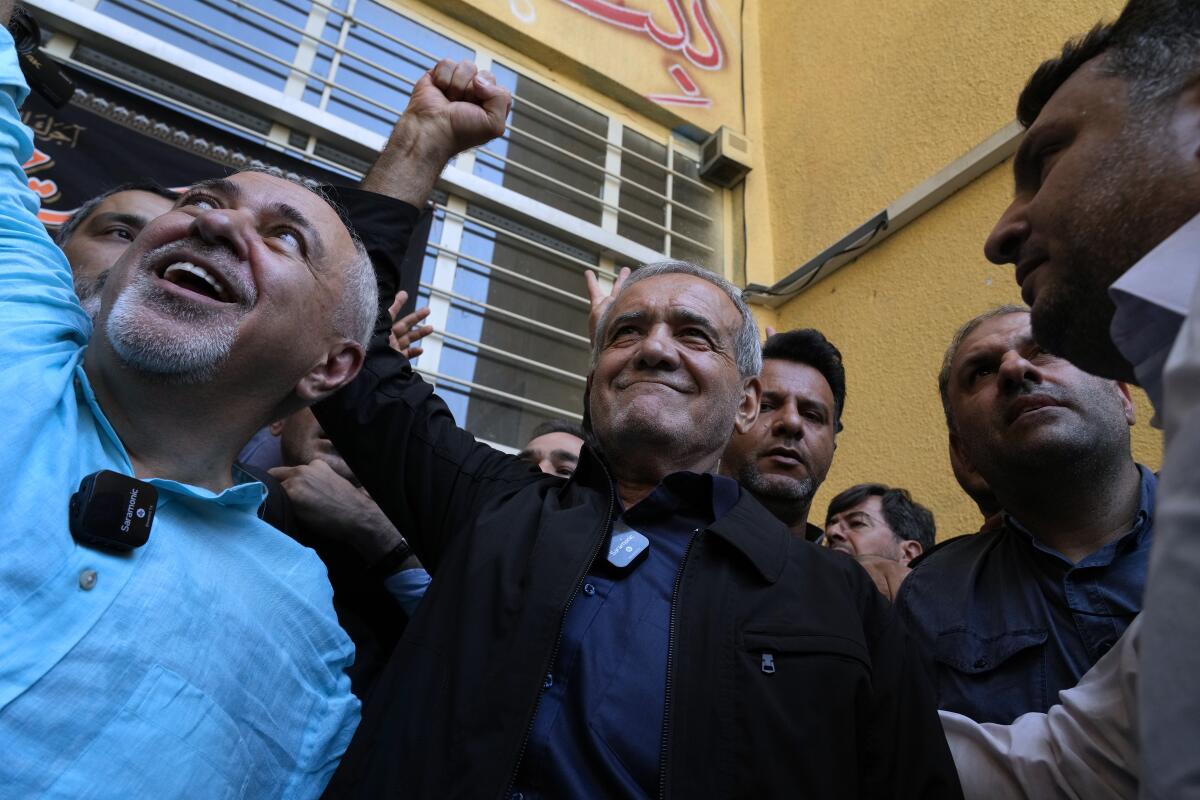
July 7: Reformist candidate Masoud Pezeshkian won Iran’s runoff presidential election Saturday, besting hard-liner Saeed Jalili by promising to reach out to the West and ease enforcement on the country’s mandatory headscarf law after years of sanctions and protests squeezing the Islamic Republic.
Pezeshkian promised no radical changes to Iran’s Shiite theocracy in his campaign and long has held Supreme Leader Ayatollah Ali Khamenei as the final arbiter of all matters of state in the country. But even Pezeshkian’s modest aims will be challenged by an Iranian government still largely held by hard-liners, the ongoing Israel-Hamas war in the Gaza Strip, and Western fears over Tehran enriching uranium to near-weapons-grade levels.
A vote count offered by authorities put Pezeshkian as the winner with 16.3 million votes to Jalili’s 13.5 million in Friday’s election. Overall, Iran's Interior Ministry said 30 million people voted in an election held without internationally recognized monitors.
Supporters of Pezeshkian, a heart surgeon and longtime lawmaker, entered the streets of Tehran and other cities before dawn to celebrate as his lead grew over Jalili, a hard-line former nuclear negotiator.
“Dear people of Iran, the elections are over and this is just the beginning of our cooperation,” Pezeshkian wrote on the social platform X, still banned in Iran. “The difficult path ahead will not be smooth except with your companionship, empathy and trust. I extend my hand to you and I swear on my honour that I will not leave you alone on this path. Do not leave me alone.”
Pezeshkian's win still sees Iran at a delicate moment, with tensions high in the Mideast over the Israel-Hamas war, Iran's advancing nuclear program, and a looming election in the United States that could put any chance of a detente between Tehran and Washington at risk. Pezeshkian's victory also wasn't a rout of Jalili, meaning he'll have to carefully navigate Iran's internal politics as the doctor has never held a sensitive, high-level security post.
The first round of voting June 28 saw the lowest turnout in the history of the Islamic Republic since the 1979 Islamic Revolution. Iranian officials have long pointed to turnout as a sign of support for the country's Shiite theocracy, which has been under strain after years of sanctions crushing Iran's economy, mass demonstrations and intense crackdowns on all dissent.
Government officials up to Khameni, the supreme leader, predicted higher turnout as voting got underway, with state television airing images of modest lines at some polling centres. However, online videos purported to show some polls empty while a survey of several dozen sites in Tehran saw light traffic and a heavy security presence on the streets.
Authorities put turnout in Friday's vote at 49.6%, still historically low for an Iranian presidential election. They counted 607,575 voided votes — which often are a sign of protest by those who feel obligated to cast a ballot but reject both candidates.
“I don’t expect anything from him — I am happy that the vote put the brake on hard-liners," said bank employee Fatemeh Babaei, who voted for Pezeshkian. "I hope Pezeshkian can return administration to a way in which all people can feel there is a tomorrow.”
Taher Khalili, a Kurdish-origin Iranian who runs a small tailor shop in Tehran, offered another reason to be hopeful while handing out candy to passersby. “In the end, someone from my hometown and the west of Iran came to power,” Khalili said. "I hope he will make economy better for small businesses.”
Pezeshkian, who speaks Azeri, Farsi and Kurdish, campaigned on outreach to Iran's many ethnicities. He represents the first president from western Iran in decades — something people hope will aid the county as those in the western part are considered more tolerant because of the ethnic and religious diversity in their area.
The election came amid heightened regional tensions. In April, Iran launched its first-ever direct attack on Israel over the war in Gaza, while militia groups armed by Tehran — such as the Lebanese Hezbollah and Yemen’s Houthi rebels — are engaged in the fighting and have escalated their attacks. (AP)












